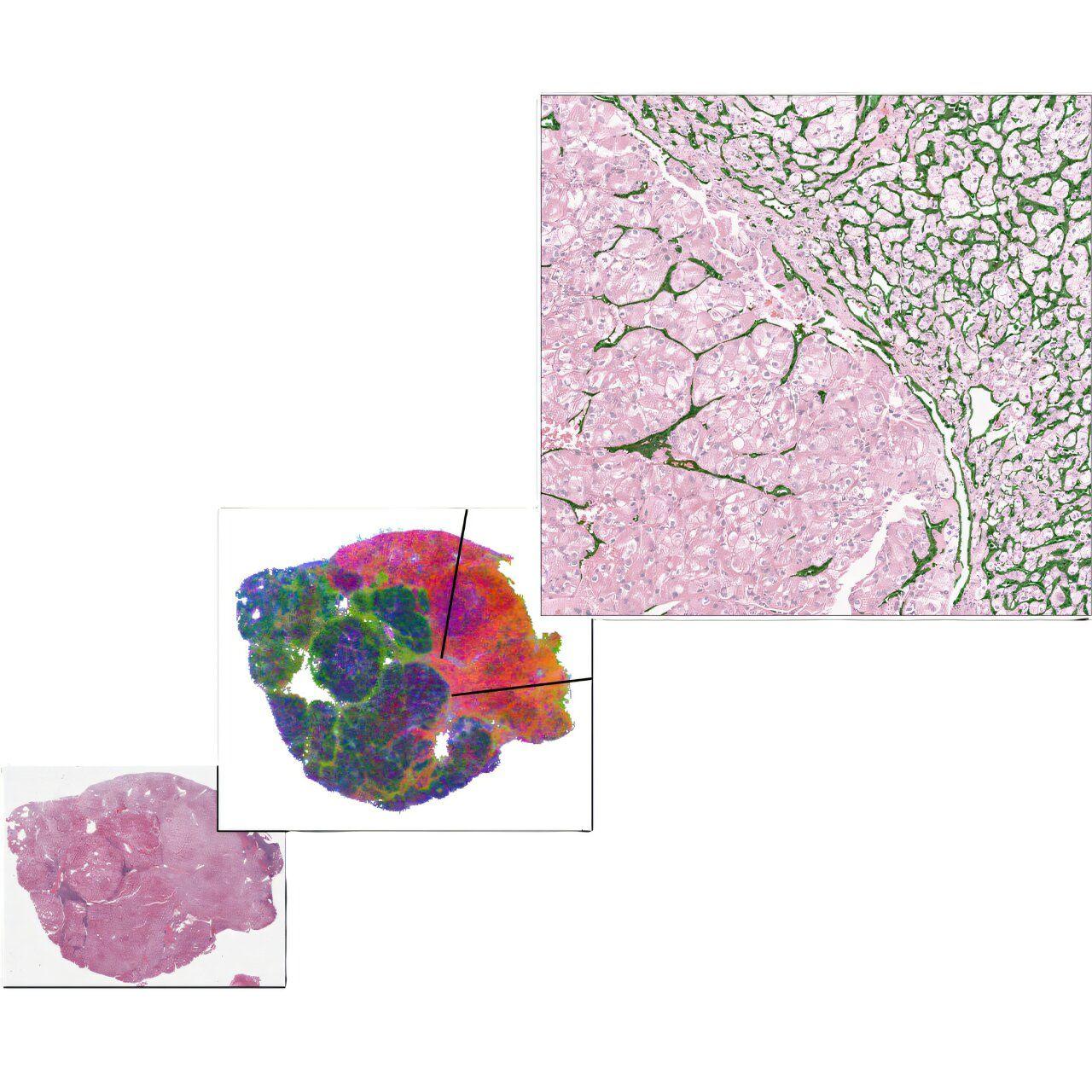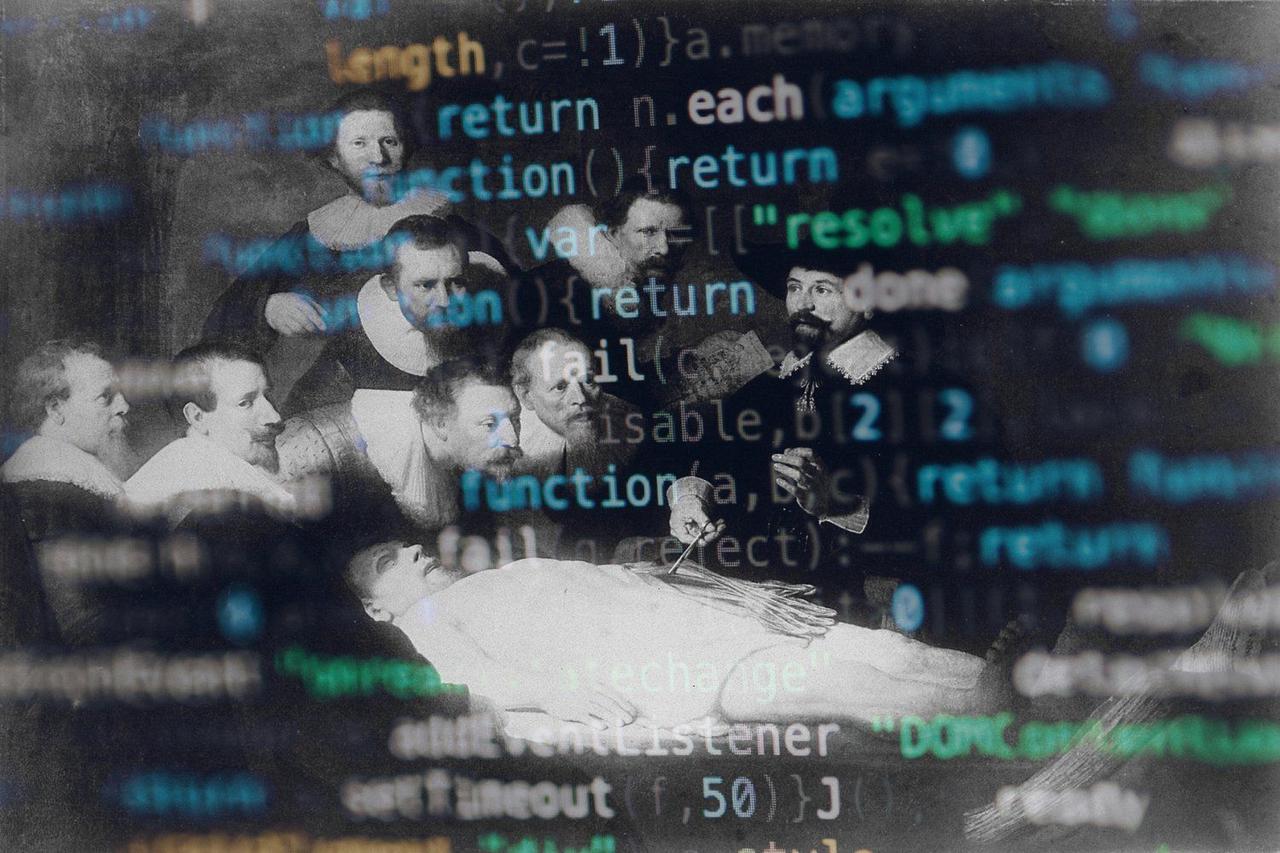AI Tool Revolutionizes Kidney Transplant Outcome Prediction in the UK
2 Sources
2 Sources
[1]
AI tool outperforms existing methods in predicting outcomes for kidney transplant patients
A new advanced artificial intelligence (AI) tool, developed by renal doctors internationally, represents a significant step forward in predicting and potentially improving outcomes for UK kidney transplant patients. For patients with late-stage renal failure, a kidney transplant can be life-changing, offering the promise of improved survival and a better quality of life compared to other treatment options. But in the UK alone, around 5,000 people are on the waiting list for a kidney transplant, with an average wait time of two to three years for a deceased donor organ. A team of experts from hospitals across the US and UK have created new software, which could ultimately pave the way for updated kidney allocation policies -- potentially leading to better patient outcomes and the more efficient use of this precious resource. The tool, titled the "UK Deceased Donor Kidney Transplant Outcome Prediction" (UK-DTOP), uses advanced AI. It was developed using data from nearly 30,000 transplant cases across 15 years. Dr. Hatem Ali, a renal specialist at University Hospitals Coventry and Warwickshire NHS Trust, leads a new study to report on the tool's capabilities in the journal Renal Failure. He explains how his research team believe the model "promises to be a game changer in kidney transplantation." "The UK-DTOP offers hope for more efficient organ allocation and improved outcomes for patients in need," Dr. Ali says. "By harnessing the power of AI and machine learning, we've created a more accurate and reliable decision-support system, which could lead to improved donor selection, transplant strategies, and ultimately, better outcomes for kidney transplant patients." "As an author of this study, I am enthusiastic about the potential impacts of the UK-DTOP tool on kidney transplantation. This AI-enabled model enhances our predictive capabilities and helps refine our approach to donor-recipient matching. "By improving how we allocate organs, we can ensure better outcomes for transplant recipients. It is my hope that this tool will be embraced globally, leading to significant advancements in patient care and the efficient use of critical health resources." A kidney transplant carries inherent risks and with the demand for organs far outstripping supply, it is crucial to ensure that every donated kidney is used in the most effective way. However, existing predictive models, such as the widely used Kidney Donor Risk Index (KDRI), have shown limitations in accurately forecasting patient outcomes -- highlighting the urgent need for more sophisticated tools that can better guide clinical decision-making. Using the data from 29,713 transplant cases recorded in the UK Transplant Registry (UKTR) between 2008 and 2022, the expert team evaluated the predictive performance of three advanced machine learning techniques, considering various donor, recipient, and transplant factors. The UK-DTOP emerged as the superior model with a predictive power of 0.74, significantly outperforming the KDRI (0.57) and its UK counterpart, the UK-KDRI (0.62). "The UK-DTOP is a versatile tool for assessing deceased donor kidney transplantation outcomes. It refines pre-transplant decision-making while recognizing that the final decision to accept an organ rests with the recipient and their risk tolerance," adds co-author Dr. Miklos Molnar, from the Division of Nephrology & Hypertension at University of Utah. "Our findings advocate for a shift toward the adoption of advanced, data-driven tools across health care systems worldwide, potentially revolutionizing donor-recipient matching and organ allocation, improving transplant success rates and saving lives." The researchers also used unsupervised machine learning techniques to identify five distinct groups of kidney transplant patients with varying survival rates. Ultimately, this approach could enable more personalized risk assessments to inform decisions about whether or not to proceed with a transplant. While the UK-DTOP represents a significant advancement, the team also acknowledge this decision-support system has certain limitations that could affect its predictions. These include variability in reported data, missing information on some donor characteristics, and the absence of certain factors that may influence long-term outcomes, such as specific antibodies and certain biological markers.
[2]
UK-DTOP tool promises improved outcomes for kidney transplant recipients
Taylor & Francis GroupOct 22 2024 A new advanced artificial intelligence (AI) tool, developed by renal doctors internationally, represents a significant step forward in predicting and potentially improving outcomes for UK kidney transplant patients. For patients with late-stage renal failure, a kidney transplant can be life-changing, offering the promise of improved survival and a better quality of life compared to other treatment options. But in the UK alone, around 5,000 people are on the waiting list for a kidney transplant, with an average wait time of 2-3 years for a deceased donor organ. A team of experts from hospitals across the US and UK have created new software, which could ultimately pave the way for updated kidney allocation policies - potentially leading to better patient outcomes and the more efficient use of this precious resource. The tool, entitled the 'UK Deceased Donor Kidney Transplant Outcome Prediction' (UK-DTOP), uses advanced AI. It was developed using data from nearly 30,000 transplant cases across 15 years. Dr Hatem Ali, a renal specialist at University Hospitals Coventry and Warwickshire NHS Trust, leads a new study to report on the tool's capabilities in the peer-reviewed journal Renal Failure. He explains how his research team believe the model "promises to be a game changer in kidney transplantation". "The UK-DTOP offers hope for more efficient organ allocation and improved outcomes for patients in need," Dr Ali says. "By harnessing the power of AI and machine learning, we've created a more accurate and reliable decision-support system, which could lead to improved donor selection, transplant strategies, and ultimately, better outcomes for kidney transplant patients." "As an author of this study, I am enthusiastic about the potential impacts of the UK-DTOP tool on kidney transplantation. This AI-enabled model enhances our predictive capabilities and helps refine our approach to donor-recipient matching. By improving how we allocate organs, we can ensure better outcomes for transplant recipients. It is my hope that this tool will be embraced globally, leading to significant advancements in patient care and the efficient use of critical health resources." A kidney transplant carries inherent risks and with the demand for organs far outstripping supply, it is crucial to ensure that every donated kidney is used in the most effective way. However, existing predictive models, such as the widely used Kidney Donor Risk Index (KDRI), have shown limitations in accurately forecasting patient outcomes - highlighting the urgent need for more sophisticated tools that can better guide clinical decision-making. Using the data from 29,713 transplant cases recorded in the UK Transplant Registry (UKTR) between 2008 and 2022, the expert term evaluated the predictive performance of three advanced machine learning techniques, considering various donor, recipient, and transplant factors. The UK-DTOP emerged as the superior model with a predictive power of 0.74, significantly outperforming the KDRI (0.57) and its UK counterpart, the UK-KDRI (0.62). "The UK-DTOP is a versatile tool for assessing deceased donor kidney transplantation outcomes. It refines pre-transplant decision-making while recognising that the final decision to accept an organ rests with the recipient and their risk tolerance," adds co-author Dr Miklos Molnar, from Division of Nephrology & Hypertension at University of Utah. "Our findings advocate for a shift toward the adoption of advanced, data-driven tools across healthcare systems worldwide, potentially revolutionising donor-recipient matching and organ allocation, improving transplant success rates and saving lives." The researchers also used unsupervised machine learning techniques to identify five distinct groups of kidney transplant patients with varying survival rates. Ultimately, this approach could enable more personalised risk assessments to inform decisions about whether or not to proceed with a transplant. While the UK-DTOP represents a significant advancement, the team also acknowledge this decision-support system has certain limitations that could affect its predictions. These include variability in reported data, missing information on some donor characteristics, and the absence of certain factors that may influence long-term outcomes, such as specific antibodies and certain biological markers. Taylor & Francis Group Journal reference: Ali, H., et al. (2024) Improved survival prediction for kidney transplant outcomes using artificial intelligence-based models: development of the UK Deceased Donor Kidney Transplant Outcome Prediction (UK-DTOP) Tool. Renal Failure. doi.org/10.1080/0886022X.2024.2373273.
Share
Share
Copy Link
A new AI-powered tool, UK-DTOP, outperforms existing methods in predicting outcomes for kidney transplant patients, potentially improving organ allocation and patient care.

Revolutionary AI Tool Enhances Kidney Transplant Outcome Prediction
A groundbreaking artificial intelligence (AI) tool has been developed by an international team of renal specialists, promising to significantly improve outcome predictions for kidney transplant patients in the United Kingdom. The UK Deceased Donor Kidney Transplant Outcome Prediction (UK-DTOP) tool represents a major advancement in the field of transplant medicine, potentially revolutionizing organ allocation policies and enhancing patient care
1
2
.The Need for Advanced Prediction Models
In the UK, approximately 5,000 people are on the waiting list for a kidney transplant, with an average wait time of two to three years for a deceased donor organ. Given the scarcity of organs and the inherent risks associated with transplantation, it is crucial to ensure optimal allocation and use of every donated kidney
1
.Existing predictive models, such as the Kidney Donor Risk Index (KDRI), have shown limitations in accurately forecasting patient outcomes. This highlighted the urgent need for more sophisticated tools to guide clinical decision-making
2
.UK-DTOP: A Game-Changing AI Solution
The UK-DTOP tool was developed using advanced AI and machine learning techniques, analyzing data from 29,713 transplant cases recorded in the UK Transplant Registry between 2008 and 2022. This comprehensive dataset allowed the researchers to evaluate various donor, recipient, and transplant factors
1
2
.Key features of the UK-DTOP tool include:
-
Superior predictive power: With a predictive power of 0.74, UK-DTOP significantly outperforms the KDRI (0.57) and its UK counterpart, the UK-KDRI (0.62)
1
. -
Versatility: The tool assesses deceased donor kidney transplantation outcomes while recognizing that the final decision rests with the recipient and their risk tolerance
2
. -
Personalized risk assessment: Using unsupervised machine learning techniques, the researchers identified five distinct groups of kidney transplant patients with varying survival rates, enabling more tailored risk assessments
1
2
.
Related Stories
Potential Impact on Transplant Medicine
Dr. Hatem Ali, a renal specialist at University Hospitals Coventry and Warwickshire NHS Trust and lead author of the study, believes that the UK-DTOP "promises to be a game changer in kidney transplantation"
1
. The tool's implementation could lead to:- More efficient organ allocation
- Improved donor selection and transplant strategies
- Better outcomes for kidney transplant patients
- Enhanced donor-recipient matching
Global Implications and Future Directions
The researchers advocate for a shift towards adopting advanced, data-driven tools across healthcare systems worldwide. Dr. Miklos Molnar, co-author from the University of Utah, suggests that this approach could potentially revolutionize donor-recipient matching and organ allocation, ultimately improving transplant success rates and saving lives
2
.While the UK-DTOP represents a significant advancement, the team acknowledges certain limitations, including variability in reported data, missing information on some donor characteristics, and the absence of certain factors that may influence long-term outcomes
1
2
. Future research may focus on addressing these limitations and further refining the tool's predictive capabilities.References
Summarized by
Navi
[1]
Related Stories
Recent Highlights
1
ByteDance's Seedance 2.0 AI video generator triggers copyright infringement battle with Hollywood
Policy and Regulation

2
Demis Hassabis predicts AGI in 5-8 years, sees new golden era transforming medicine and science
Technology

3
Nvidia and Meta forge massive chip deal as computing power demands reshape AI infrastructure
Technology








